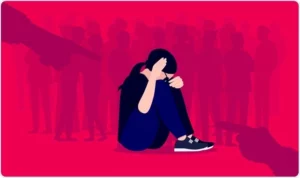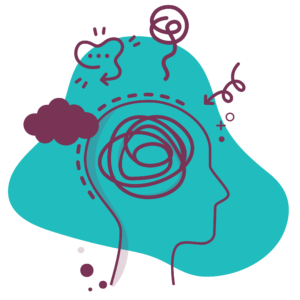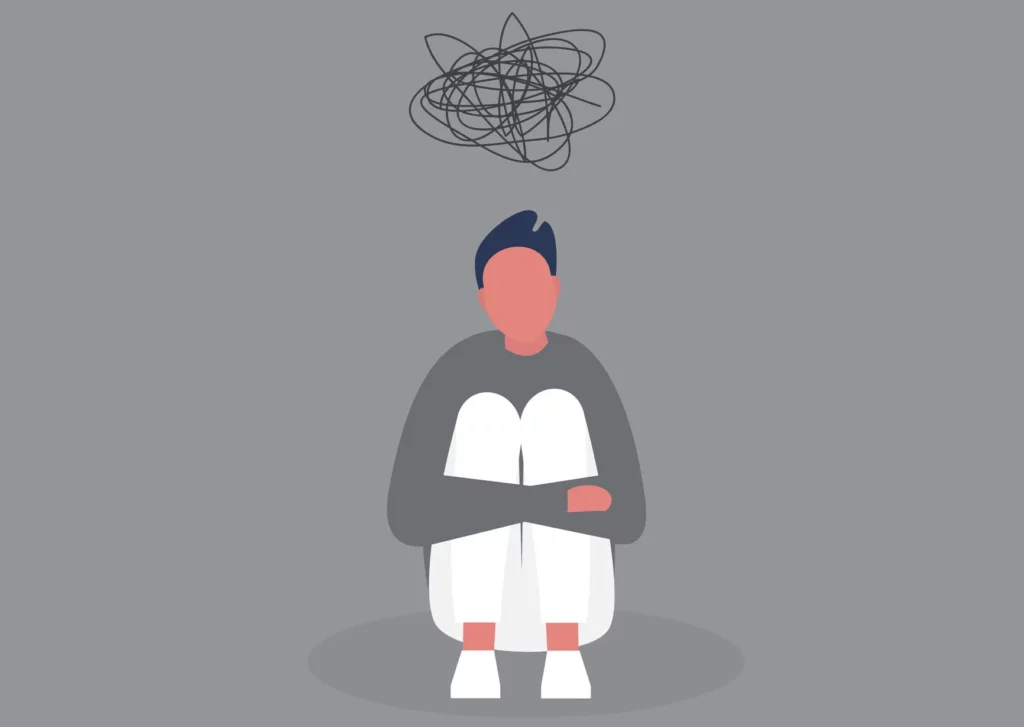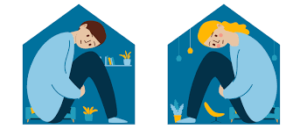ADHD and social anxiety can both present unique challenges in everyday life. For people who suffer from ADHD, it can be difficult to focus on tasks and stay organized. Social anxiety can make it difficult to interact with others, which can lead to feelings of isolation. It is important to understand these challenges and learn how to overcome them. In this blog post, we will discuss some tips for dealing with ADHD and social anxiety.
Contents
Defining ADHD
ADHD is a chronic neurodevelopmental disorder that is characterized by problems with focus, hyperactivity, and impulsiveness. It can be difficult for people with ADHD to concentrate on tasks and stay organized. They may also be impulsive and have difficulty controlling their emotions. ADHD can make it difficult to succeed in school and work. It also can lead to problems in relationships.
There are three types of ADHD:
Inattentive type: This type is characterized by problems with focus and concentration.
Hyperactive-impulsive type: This type is characterized by hyperactivity and impulsiveness.
Combined type: This type includes symptoms of both inattentive and hyperactive-impulsive types.
Defining Social Anxiety
Social anxiety is a type of anxiety that is characterized by fear of social situations. People with social anxiety may feel anxious about interacting with others, meeting new people, or speaking in public. They may avoid social situations altogether or suffer from intense anxiety when they are in them. Many people with social anxiety also have symptoms of depression.
Social anxiety disorder, also known as SAD, is the most common type of anxiety disorder. It is estimated that 15 million adults in the world suffer from SAD. It is twice as common in women as it is in men.
Causes of ADHD and Social Anxiety
The exact cause of ADHD is unknown, but it is believed to be caused by a combination of genetic and environmental factors.
Social anxiety may be caused by genetics, brain chemistry, or life experiences. It is thought that people who have social anxiety may be more sensitive to criticism and rejection. They may also have experienced traumatic events or had negative experiences with social situations in the past.
Risk Factors For ADHD and Social Anxiety
There are several risk factors for both ADHD and social anxiety. These include:
Family history: People with a family history of ADHD or anxiety disorders are at increased risk for developing these conditions.
Environment: Exposure to environmental toxins, such as lead, may increase the risk of developing ADHD.
Brain chemistry: Imbalances in brain chemicals, such as dopamine, may play a role in the development of ADHD.
Life experiences: Traumatic events or negative experiences with social situations can increase the risk of developing social anxiety.
Stress: Stressful life events, such as divorce or the death of a loved one, can trigger symptoms of social anxiety.
Trauma: Traumatic experiences, such as abuse or bullying, can also cause social anxiety.
ADHD can happen by a combination of genetic and environmental factors. It is believed that ADHD runs in families, so there may be a genetic component to the disorder. Environmental factors such as exposure to toxins or stress can also play a role in the development of ADHD.
Social anxiety may happen by a combination of genetic and psychological factors. It is a belief that social anxiety may be hereditary, so people who have relatives with the disorder may be more likely to develop it themselves. Social anxiety may also develop by negative experiences in childhood or adolescence.
Symptoms

The symptoms of ADHD can vary from person to person. Some common symptoms include problems with focus, hyperactivity, impulsiveness, and emotional control.
People with social anxiety may experience a variety of symptoms. These can include fear of social situations, avoidance of social situations, intense anxiety in social situations, and physical symptoms such as sweating or trembling.
Although SAD and ADHD are different conditions, some of their symptoms tend to overlap. For example:
- inability to focus
- not remembering things
- brain fog
- misplacing/forgetting material things
- inability to complete tasks
- interference with work/school performance
- difficulty in establishing social/professional relationships
Though any anxiety disorder can coexist with ADHD, SAD is one of the most common. Learning the differences between the two conditions is important in the management and treatment of both.
These signs and symptoms can make life quite difficult for the person suffering from them. It is important to seek help if you or someone you know is struggling with either of these disorders.
Effects Of ADHD On Social Anxiety
It is important to understand how these disorders can impact each other and learn how to cope with both.
- ADHD can make it difficult to focus on tasks, which can lead to feeling overwhelmed in social situations.
- People with ADHD may also be impulsive, which can result in them saying or doing things that they later regret.
- It’s entirely possible that anxiety disorders occur much more frequently in people with ADHD than they do in the general population.
- Additionally, people with ADHD may have difficulty controlling their emotions, which can make them seem unpredictable to others.
- Social anxiety can make it difficult to interact with others, which can lead to feeling isolated. People with social anxiety may also avoid social situations altogether, which can make it difficult to meet new people or build relationships.
- According to the National Comorbidity Survey Replication, 47% of adults with ADHD have an anxiety disorder—approximately 30% have SAD, specifically.
- Additionally, people with social anxiety may have symptoms of depression, which can further impact their ability to function in everyday life.
- It can also be difficult to focus when you’re feeling anxious, which can exacerbate problems with ADHD.
Treatment

There is no cure for ADHD, but there are treatments that can help people manage the symptoms of the disorder.
Medication
Stimulant medications such as Adderall and Ritalin are often prescribed to treat ADHD. These medications can help improve focus and concentration. Non-stimulant medications such as atomoxetine (Strattera) and guanfacine (Intuniv) may also be effective in treating ADHD.
Medications such as antidepressants and beta–blockers may also be prescribed to treat social anxiety.
Therapy
Cognitive-behavioral therapy (CBT) is a type of therapy that can help people with social anxiety manage their symptoms. CBT can help people learn how to cope with their fear of social situations. It can also teach them how to deal with the physical symptoms of anxiety, such as sweating and trembling.
People with social anxiety can benefit from exposure therapy. This involves gradually exposing yourself to the fear-inducing situation.
Psychotherapy is also an effective treatment for ADHD. This type of therapy can help people with ADHD learn how to manage their symptoms and make lifestyle changes.
Self Help Tips
There are also things that people can do on their own to help manage their symptoms.
- Relaxation techniques such as deep breathing and progressive muscle relaxation may also help manage anxiety.
- Exercise has also been beneficial in treating both ADHD and anxiety. Exercise can help improve focus and concentration, as well as reduce stress and anxiety.
- Avoid alcohol and drugs, as they can exacerbate symptoms of both disorders.
- Eat a healthy diet and exercise regularly to help improve focus and concentration.
- Making lifestyle changes such as getting enough sleep, eating a healthy diet, and reducing stress can also help people with ADHD and anxiety disorders.
- Identifying what triggers your symptoms is an important part of managing both ADHD and social anxiety. Once you know what triggers your symptoms, you can start to develop a plan to deal with them.
- A support system can be incredibly helpful when dealing with both ADHD and social anxiety. Having people you can rely on can make a big difference in how you cope with your symptoms.
It is possible to live a normal, fulfilling life with both SAD and ADHD. However, it can be challenging at times.
Conclusion
In conclusion, ADHD and social anxiety can be difficult to deal with, but there are treatments and self-help techniques that can help. It is important to identify your triggers and develop a plan to deal with them. Having a support system in place can also make a big difference.
For more information, please contact MantraCare. ADHD is a neurodevelopmental disorder characterized by difficulty in paying attention, hyperactivity, and impulsivity. If you have any queries regarding Online ADHD Counseling experienced therapists at MantraCare can help: Book a trial ADHD therapy session



